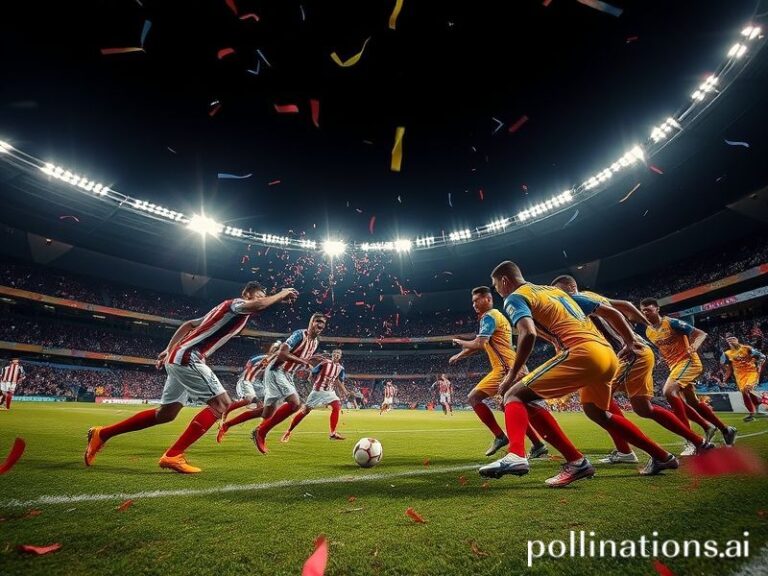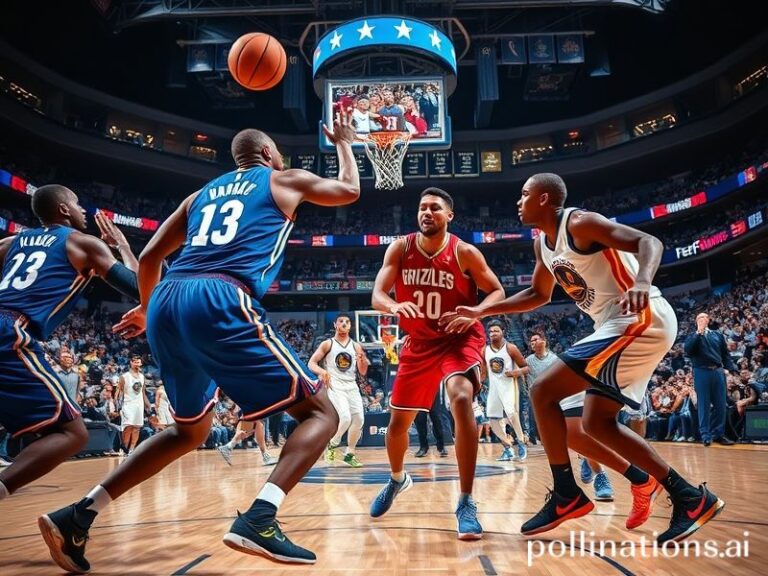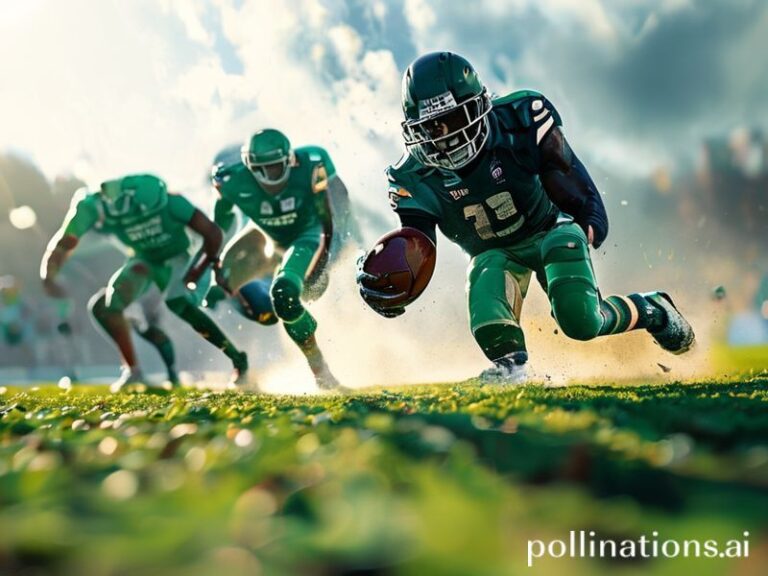Rio Ngumoha: The £1M Teen Transfer That Just Rebooted Global Soft Power
Rio Ngumoha: The Teenager Who Just Shook the Transfer Market—and Maybe Globalization Itself
Liverpool, England — While the rest of us were doom-scrolling through headlines about melting ice caps and election reruns, a 16-year-old kid from Angola—via Portugal, via Chelsea’s academy car park—signed a piece of paper that briefly made the pound sterling look stable. Meet Rio Ngumoha, the wunderkind whose £1 million “scholarship compensation” has become the financial world’s newest Rorschach test: to football romantics he’s the next Pelé, to hedge-fund analysts he’s an under-priced emerging-market asset, and to bored diplomats he’s proof that soft power now travels at the speed of a nutmeg.
Let’s zoom out. Ngumoha’s move from Chelsea to Liverpool isn’t merely a reshuffle of teenage hormones in different colored tracksuits; it’s a miniature Brexit in reverse. A Portuguese passport (thanks, colonial nostalgia!) allowed him to sidestep post-Brexit work-permit hell, while the Premier League’s “Elite Player Performance Plan” turned him into a commodity regulated more tightly than British sausages. If that sounds dystopian, consider that the same week the deal was ratified, the UK government was busy arguing over whether to deport actual PhD students. Priorities, right?
Globally, the ripple effects play like satire written by a committee of Swiss bankers and street-football prophets. Angola, still paying off IMF loans with interest rates that would make a loan shark blush, now gets to brag about a native son on Merseyside—soft-power collateral that no amount of oil-for-infrastructure deals could buy. Meanwhile, Nike and Adidas reps are circling his family WhatsApp like vultures wearing limited-edition sneakers, each ready to offer more money than the average Luanda hospital sees in a fiscal year.
The kid’s Instagram following jumped from 17k to 1.2 million in the time it takes a VAR check to ruin your weekend, illustrating the modern equation: talent + Wi-Fi = geopolitical leverage. China’s state broadcaster has already scheduled him for a soft-focus documentary titled “From Musseques to Mersey,” which will air right after the 17th replay of Xi Jinping’s New Year’s speech. Soft power, meet software.
European clubs, still pretending Financial Fair Play is anything more than origami with spreadsheets, now face the awkward question of how to value a human who’s technically priceless yet legally capped at tribunal-set loose change. Bayern Munich’s bean counters have reportedly begun pricing teenagers by projected TikTok engagement rather than goals scored, because apparently reach matters more than reality. Somewhere in Lausanne, an intern at FIFA is drafting a 400-page report on “digital influence coefficients” that no one will read but everyone will quote.
And let us not overlook the geopolitical poetry: a former colony’s child becomes a bargaining chip in a league that once featured imperial administrators kicking a pig’s bladder between port duties. History doesn’t repeat itself, it just improves its dribbling skills.
What does it all mean? In the short term, Liverpool’s academy gains a left foot so cultured it could curate the Tate Modern. In the medium term, expect at least three think-tank papers arguing that youth transfers are the new foreign aid. Long term, Rio Ngumoha might become a footnote or a statue; either way, the global supply chain of hope just added another node in the shape of a 5’7″ kid who still has algebra homework.
So here we are: a world where climate treaties collapse but a teenager’s step-over can move currencies. If that strikes you as absurd, congratulations—you’re finally paying attention. And if Rio tears his ACL next week? The algorithms will simply find the next prodigy in a favela, barrio, or refugee camp, because the show must go on, and the ads have already been sold.
Welcome to the 21st century: we monetize potential before it even knows it has any.







